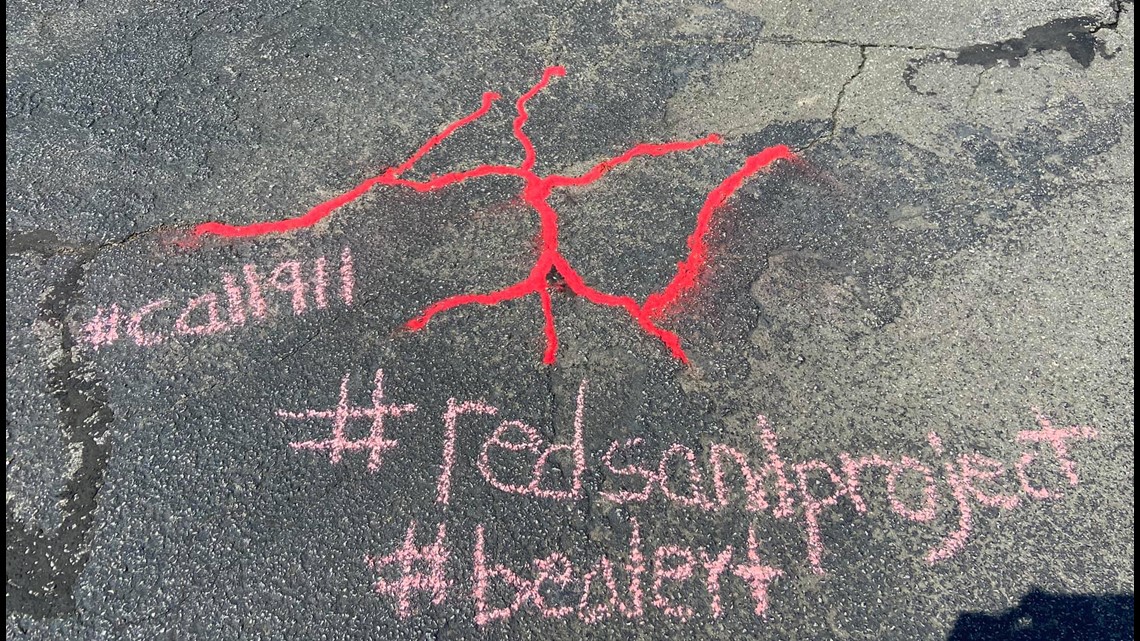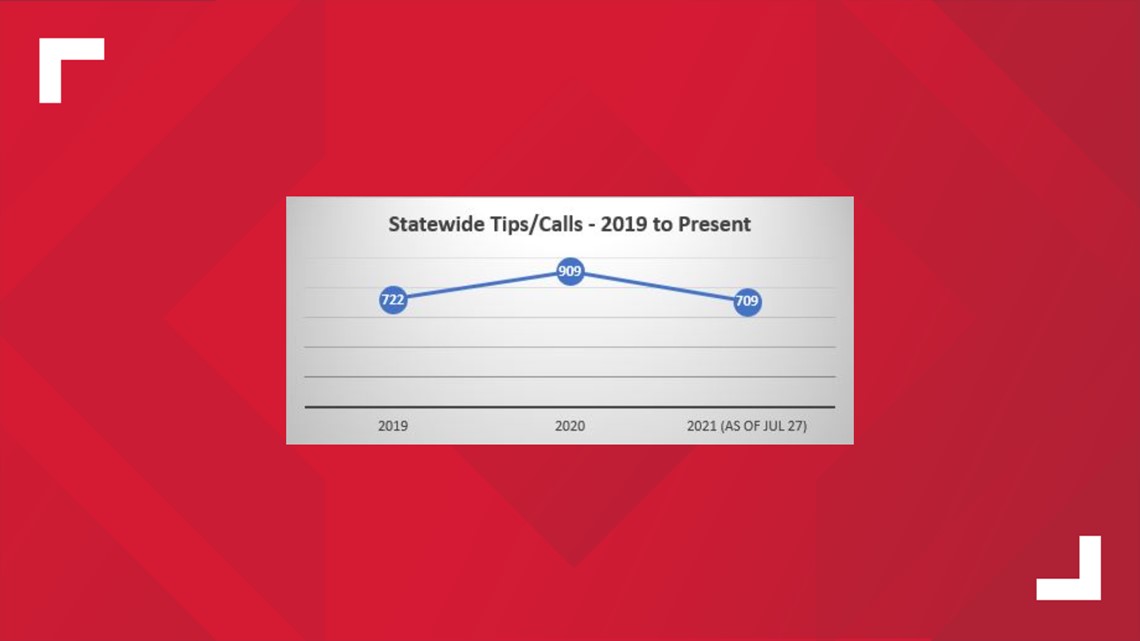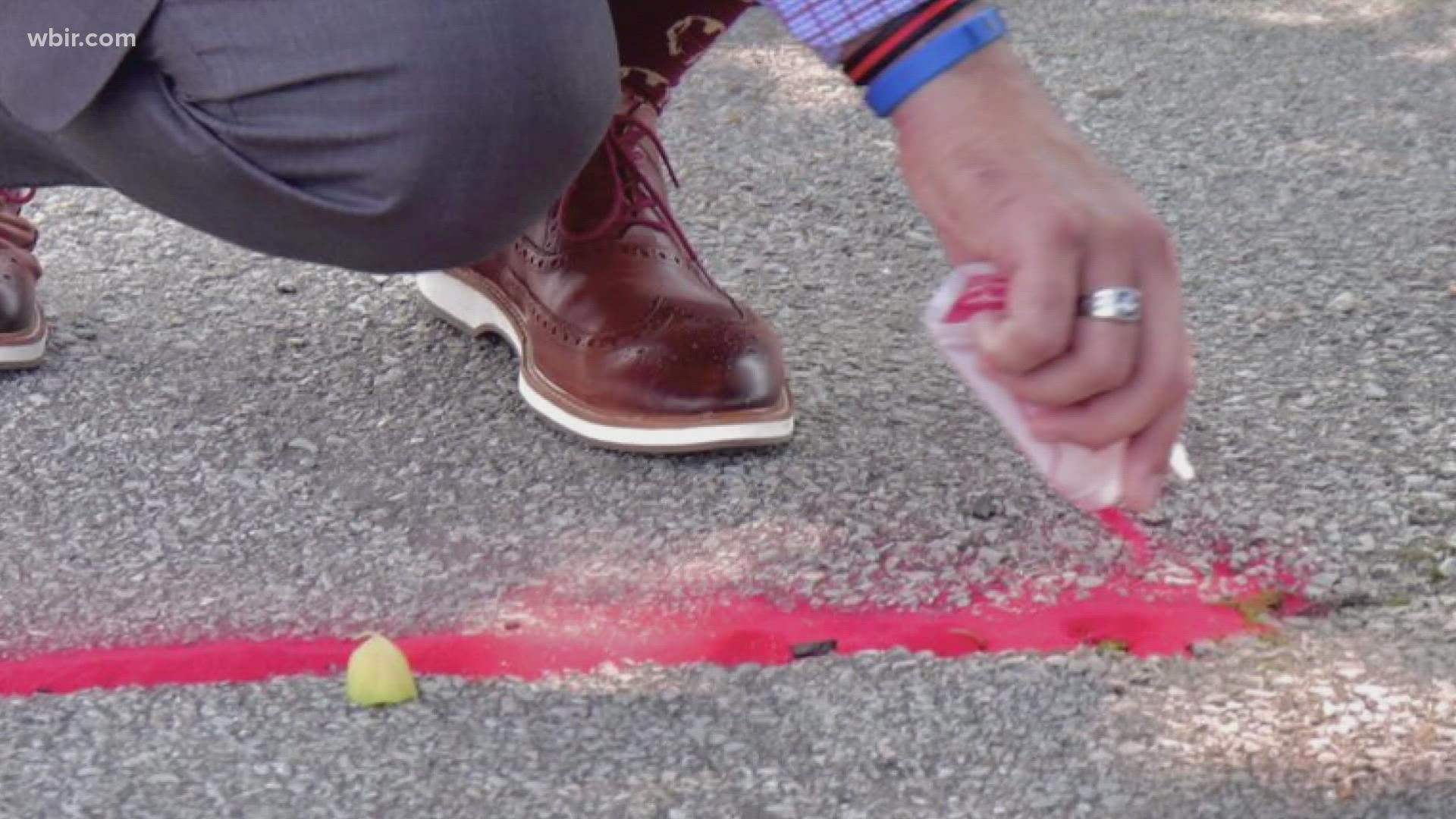KNOXVILLE, Tenn. — So far this year, there have been more than 180 known cases of human trafficking in Tennessee.
Rana Zakaria has been working as a community educator for the Community Coalition Against Human Trafficking for over 2 years. She witnessed the increase in trafficking cases across the state.
Spanish Version: Aumento en casos de tráfico humano en Tennessee preocupa a defensores de derechos humanos
"In Tennessee, it's the second-fastest growing crime," Zakaria said. "Folks don't think it's happening here."
However, she said there are many misconceptions of what human trafficking looks like. The most common type of human trafficking in East Tennessee is familial, according to Zakaria. Victims are more likely to know their traffickers personally.
"It's not 'stranger danger,'" Zakaria said. "It's not someone popping out of the bushes. It's someone these victims know and that they have a relationship with."
According to studies released by the Tennessee Bureau of Investigation and the Vanderbilt Center for Community Studies, most people are roped into sex slavery when they are between 11 years old and 14 years old.
Counties across the state are raising awareness through the Red Sand Project Campaign, as part of Human Trafficking Awareness Week.
People across the county sprinkle red sand in-between the cracks in the pavement. By doing this, they hope to bring attention to human trafficking and spark conversations about it.
"The approach is symbolic, with the grains of sand representing those individuals who fall through the cracks—whether the cracks of our social, economic, and political systems or those of our personal consciousness," officials said.
Monroe County participated in the campaign.


"If you can make a difference in one person by noticing something and being able to save somebody, then it's going to be all worth it," said April White, who works with Monroe Emergency Services.
White started the project within her department. She said that spreading awareness of trafficking is a cause that is close to her heart since she has three kids and said she wants to keep them safe.
"What, if that was me? What if that was one of my kids?" White said. "It just kept hitting home with me — what if, what if?"
White said she was concerned that the crime is growing in Tennessee.
The TBI keeps tabs on the number of calls that come into their human trafficking hotline. In 2019, there were 722 calls to the TBI's hotline. That number increased in the following year to 909 calls.


Becky Bullard, the Senior Director of Metro Nashville's Office of Family Safety said that the increase in calls in 2020 could be correlated with the COVID-19 pandemic.
"Some of that increase is potentially a byproduct of a pandemic that caused economic instability and increased isolation," Bullard said
So far in 2021, the hotline received 709 calls — just 7 months into the year.
"We really have to work upstream and figure out where are these cracks and gaps that traffickers are seeing," Zakaria said.
While bringing awareness to the issue is a small step toward tackling the problem, advocates against human trafficking know it's a vital part of bringing the issue to the top of people's minds.

